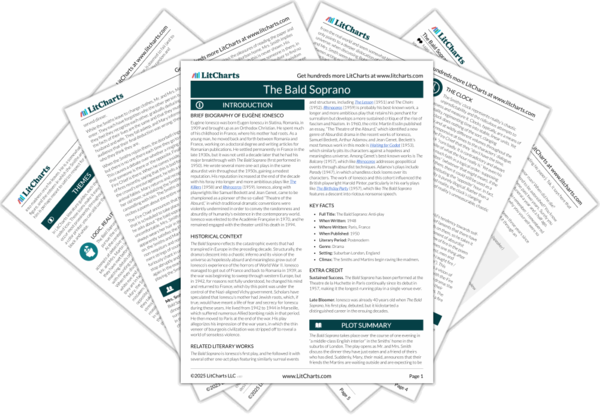Mr. Martin’s assertion that he “wasn’t there yet” when he looked in the mirror this morning could be read as a rather existential comment on the nature of identity—in this view, Mr. Martin sees his own existence not as something fixed and enduring, but rather as something fleeting and ephemeral. When he begins the day, it seems, he needs time to recapture his sense of self. At the same time, though, it’s also entirely possible that, in the absurdist world of this play, his comment doesn’t have greater meaning. In fact, its nonsensical nature might be the point: the play intentionally resists tidy interpretation and even mocks the attempt to use logic to analyze or make sense of life.
